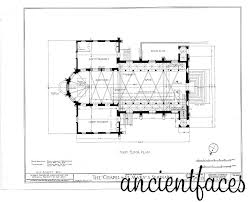Old-timers like me remember that there is a special permission for priests on the Feast of All Souls. Back in 1915, Pope Benedict XV signed a decree giving priests permission to celebrate three Masses on November 2. He specified that the three intentions were for the faithful departed, for the priest's intention, and for the intention of the Holy Father. Following canon law, however, the priest was only allowed to take one stipend.
On Nov. 2 I read this in the "Ordo," the little book that Paulist Press publishes annually to help clergy, liturgical ministers and planners follow accurately and precisely the Church's liturgical calendar. And I laughed. I have no doubt that in decades past, and maybe today in some monastic houses, many priests would have taken this opportunity to celebrate the Eucharist three times. When I attended St. Mary's Seminary, Baltimore, back in the 1970s, I heard stories from the older Sulpicians about how the many private chapels behind the pews were taken by priests saying three Masses, one immediately aftern another. Each priest would get a seminarian to help him, respond to the dialog, and serve as altar boy. Maybe the priest would slip the sem a few quarters for his help.
But that was then, and this is now. Today, it is a rare week when I only celebrate one Mass a day for five days in a row. For example, today I celebrated the regularly scheduled 7 am, and a 10 am funeral Mass. Saying three Masses on a weekday is "no big deal." The past two weekends have been "light" for me: only four Masses between 4 pm on Saturday and noon on Sunday, two weeks ago, and five (including one for Robert Morris University campus ministry on Sunday night) this past Sunday. There was a stretch in October, when because of weddings, funerals, my installations as pastor by the bishop, and one of my associates being out of the country on pilgrimage, I celebrated eight, seven and nine Masses over a weekend.
Let me be clear, and not misunderstood. I truly like being a priest, and love to celebrate Mass. It could be this morning's Mass in Mary Mother of Hope's tiny chapel with 13 people, or a full St. Vitus church with 900 on Easter Sunday morning. It could be silent, or with full music and cantor. As the church's doctrine teaches, the Eucharistic Sacrifice has infinite graces.
But at the same time there are human limitations. Here is what the 1983 Code of Canon Law for the Latin Church states:
Canon 905 §1. A priest is not permitted to celebrate the
Eucharist more than once a day except in cases where the law permits him to
celebrate or concelebrate more than once on the same day.
§2. If there is a shortage of priests, the local ordinary can
allow priests to celebrate twice a day for a just cause, or if pastoral
necessity requires it, even three times on Sundays and holy days of
obligation.
As I read this canon, the presumption is that a priest only says one Mass a day. For a "just cause" a priest can celebrate twice on a weekday, or "even" three times on Sundays. Now, a just cause is a low threshold, and the needs of the faithful take precidence over the desires (and energy?) of the priest.
But it is well know that several priests in our diocese celebrate five, six or seven Masses each and every weekend (Sunday anticipated on Saturday night and Sunday). Our bishop is an "Energizer bunny," often celebrating three Masses on Saturday and on Sunday. I have no doubt that situations are worse (more Masses), in rural dioceses in our country and in mission lands.
As I grow older (whine coming!), I find it is harder to draw the energy to celebrate three, four or five Masses in one day. A canon lawyer once told me that this canon is there for the benefit of the people. A priest worn out cannot do justice to the celebration of Mass, and may by his inattentiveness or haste cause the faithful not to appreciate the graces of the Mass, or preach well to open the riches of the Word of God. And priests are not "Mass machines," just turning out the Lord's Supper at the drop of a hat.
Blessedly I can still celebrate multiple Masses, but when will my energy run out? And when will our parish Sunday Mass schedules change to reflect the fewer priests we have?
I don't have any answers, but from today's perspective, that 1915 decree by Pope Benedict XV, issued with undoubted desire to increase the holiness of the clergy, looks more and more like a musty historical artifact, like telegraphs, horse-drawn buggies, and muttonchops.



thank you...
ReplyDelete